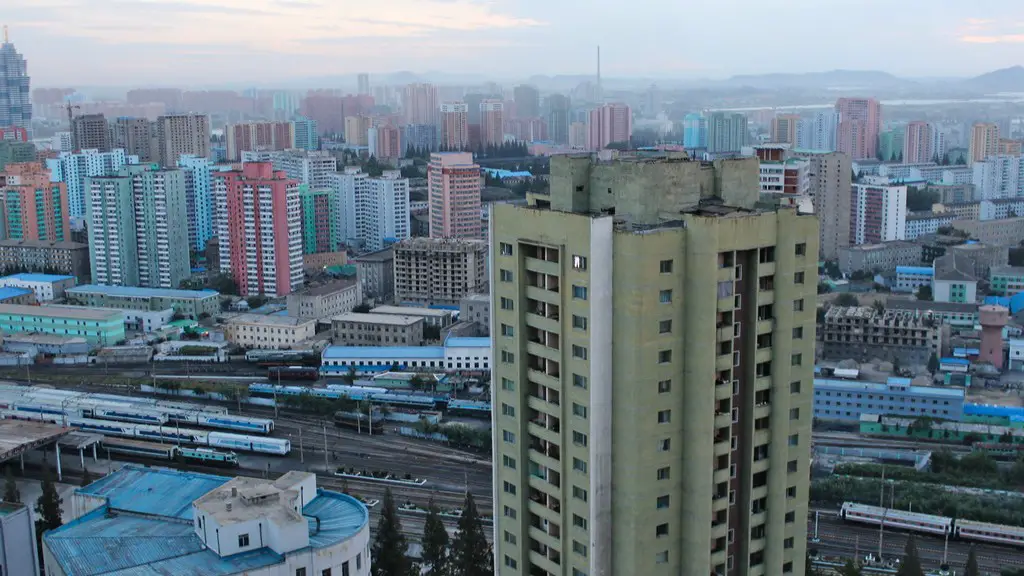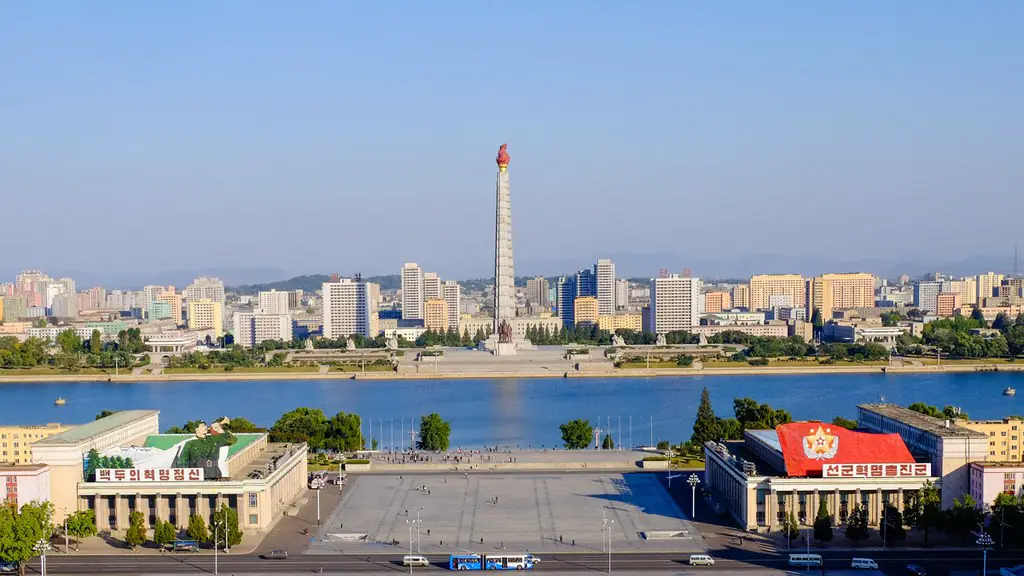The threat of a war between North Korea and the United States has caused much anxiety and uncertainty around the world. North Korea’s relentless pursuit of a nuclear weapons program and its growing arsenal of ballistic missiles coupled with its unpredictable aggression toward the US and its allies has forced the Western nations to contemplate the possibility of a military confrontation. North Korea claims to have nuclear warheads and boasts of its ability to launch non-conventional missiles capable of striking the US mainland.
This has resulted in a strategic dilemma for the US. On one hand, it needs to send a strong message to North Korea to cease its nuclear weapons program, while on the other hand, it is reluctant to resort to a military confrontation that could potentially lead to devastating consequences.
In order to get a better understanding of the situation, it is important to look at the history behind the conflict. North Korea’s desire to acquire nuclear weapons dates back to the 1950s. The majority of North Korean nuclear ambitions have been fuelled by its political agenda of weakening US influence in the region. As long as the US continues to be bold in its stance against North Korea, Pyongyang will persist in its nuclear ambitions.
Experts agree that a peaceful and diplomatic solution is the only way to end the standoff between the two countries. The US and its allies have imposed economic sanctions on North Korea in order to force Pyongyang to abandon its nuclear weapons program. However, these sanctions have so far failed to make a significant impact, and North Korea continues to defy the international community by pursuing its nuclear ambitions.
US Secretary of State Rex Tillerson has called on China and other countries to increase pressure on North Korea to cease their nuclear activity. In addition, he has also proposed a new initiative to create an international coalition that would act as a “pressure force” to persuade North Korea to return to the negotiating table. Unfortunately, these efforts have been met with hostility by North Korean leader Kim Jong Un, who has threatened to launch a preemptive attack on the US.
It is clear that a war with North Korea is a serious possibility that should not be taken lightly. The US must carefully weigh its options and consider the risks before taking any action. Nevertheless, it is possible that the international community may be able to find a way to diffuse the situation through negotiations and diplomacy. Only time will tell if this will be the case.
The Impact of Sanctions
The economic sanctions imposed by the US and other countries are meant to cripple North Korea’s economy and force Pyongyang to abandon its nuclear ambitions. The logic is that North Korea needs foreign currency to finance its military activities, and the sanctions deprive Pyongyang of most of its foreign financial resources. The impact of the sanctions is difficult to assess, as North Korea is notoriously secretive about its finances and economy.
According to some analysts, the sanctions have been successful in limiting North Korea’s access to foreign currency, but they have failed to change North Korea’s behavior. Other experts point out that North Korea appears to be relatively immune to the effects of sanctions, as it is largely self-sufficient and able to survive with a minimum amount of trade and financial transactions. Nonetheless, the sanctions are still having an impact and are likely to continue to increase pressure on North Korea.
It remains to be seen whether the sanctions will force North Korea to abandon its nuclear ambitions. On the other hand, it is also possible that the sanctions could lead to a retaliatory military response from Pyongyang. This means that the potential consequences of the sanctions must be considered before they are implemented.
The Importance of China
China has historically been North Korea’s closest ally, and it is widely recognized as the country with the most influence over Pyongyang. Beijing has been reluctant to pressure North Korea too hard, as it does not want to risk causing instability in the region. However, China has nevertheless stepped up its sanctions efforts in recent years.
China has long been seen as the key to solving the North Korean nuclear crisis, and US officials have urged China to take a more active role in pressuring Pyongyang to halt its nuclear program. It is unclear, however, if China is willing or able to do this, as it is likely to be reluctant to risk provoking North Korea. At the same time, the risk of a conflict in the region is too severe to ignore.
For this reason, it is important for the US to continue to push China to take a more aggressive stance against North Korea. The US should also seek to engage other countries in the region, such as South Korea and Japan, to help build a united front against Pyongyang.
Assessing the Risk of War
The possibility of a war with North



